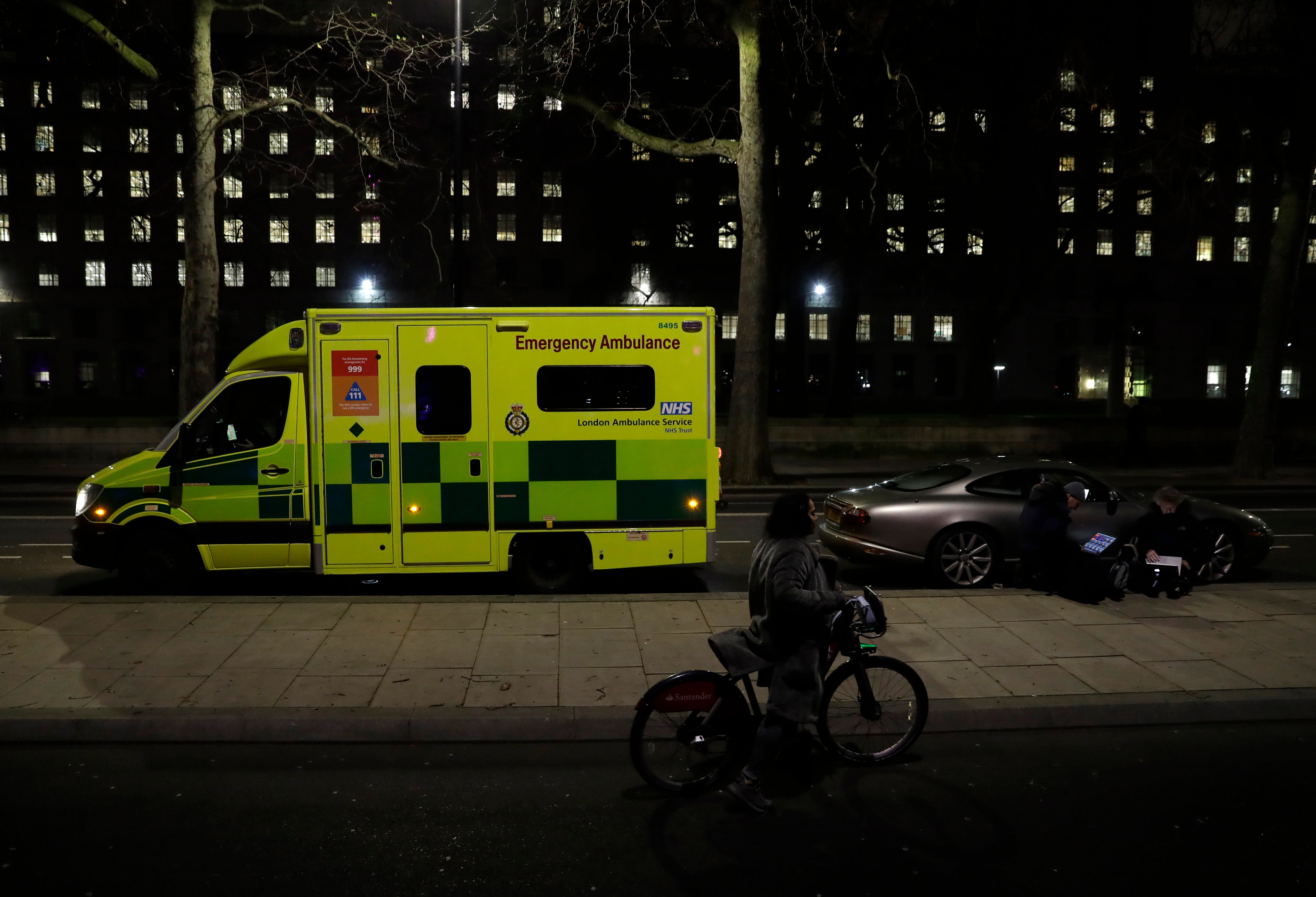UK in 'eye of the storm' amid surging new coronavirus cases
British medics are warning that hospitals around the country face a perilous few weeks amid surging new coronavirus infections that have been blamed on a new variant of the virus

Your support helps us to tell the story
From reproductive rights to climate change to Big Tech, The Independent is on the ground when the story is developing. Whether it's investigating the financials of Elon Musk's pro-Trump PAC or producing our latest documentary, 'The A Word', which shines a light on the American women fighting for reproductive rights, we know how important it is to parse out the facts from the messaging.
At such a critical moment in US history, we need reporters on the ground. Your donation allows us to keep sending journalists to speak to both sides of the story.
The Independent is trusted by Americans across the entire political spectrum. And unlike many other quality news outlets, we choose not to lock Americans out of our reporting and analysis with paywalls. We believe quality journalism should be available to everyone, paid for by those who can afford it.
Your support makes all the difference.British medics warned Friday that hospitals around the country face a perilous few weeks amid surging new coronavirus infections that have been blamed on a new variant of the virus.
A day after the U.K. posted a record 55,892 new infections and another 964 coronavirus-related deaths, concerns are mounting about the impact on the overstretched National Health Service. Field hospitals that were constructed in the early days of the pandemic but that were subsequently mothballed are being reactivated.
The Royal College of Nursing’s England director, Mike Adams, told Sky News that the U.K. was in the “eye of the storm” and that it was “infuriating” to see people not following the social distancing guidance or wearing masks.
A leading physician also warned of burnout among health workers on the front line of the outbreak in hospitals, while also urging people to follow the rules.
“I am worried," Adrian Boyle, vice president of the Royal College of Emergency Medicine, told the BBC. “We are very much at battle stations.”
New infections have more than doubled in recent weeks after a new variant that is said to be around 70% more contagious was found to be behind a big spike in cases around London and the southeast of England.
Given the lags between new cases and hospitalizations and subsequently deaths, there are huge concerns about the path of the pandemic over the coming month or two in a country that has Europe's second-highest virus-related death toll at nearly 74,000.
As a result of the spike, which has spread around the country and seen lockdown restrictions tightened, the strategy around the rollout of vaccines has been changed to get more people an initial jab as soon as possible, with a scheduled second one delayed.
In a joint statement Thursday, the chief medical officers for England, Scotland, Wales and Northern Ireland, said the first vaccine dose offers “substantial” protection.
Currently, two vaccines have been approved for use in the U.K.
Just under 1 million people have received the first dose of the vaccine developed by American pharmaceutical firm Pfizer and German biotechnology company BioNTech, with a small minority also getting the second dose as planned after 21 days.
Alongside the approval earlier this week of the vaccine developed by the University of Oxford and British pharmaceutical firm AstraZeneca, a new dosing regimen was outlined, aimed at providing a speedier rollout. This means the second dose of both vaccines will be within 12 weeks of the first.
The four medical officers said they were “confident” the first dose of both vaccines would provide “substantial” protection.
“In the short term, the additional increase of vaccine efficacy from the second dose is likely to be modest; the great majority of the initial protection from clinical disease is after the first dose of vaccine," they said.
The new plan has faced widespread criticism, with the U.K.'s main union for doctors warning that delaying the second dose causes huge problems for thousands of partially vaccinated elderly and vulnerable people.
“It is grossly and patently unfair to tens of thousands of our most at-risk patients to now try to reschedule their appointments," said Richard Vautrey from the British Medical Association.
___
Follow AP coverage of the coronavirus pandemic at https://apnews.com/hub/coronavirus-pandemic and https://apnews.com/hub/coronavirus-vaccines and https://apnews.com/UnderstandingtheOutbreak